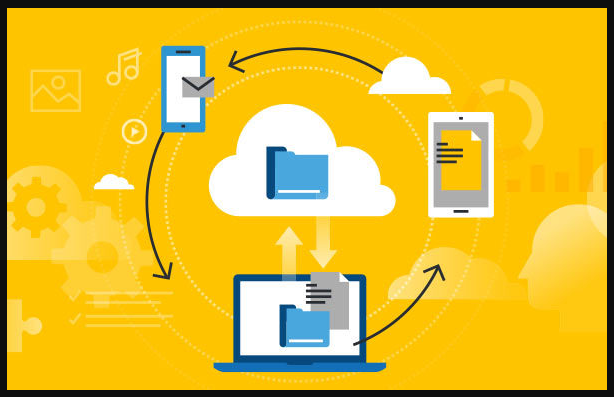In recent years, some businesses have turned to cloud-based workflow solutions. This technology offers several advantages, including increased efficiency, scalability, and security.
In this post, we will look at the benefits of employing a cloud-based workflow system for your business.
Introduction
To stay competitive in the digital era, firms must be able to swiftly adapt to new technology and procedures.
Cloud based workflow solutions, for example, have the potential to alter the way firms function.
These systems have various advantages over traditional on-premise solutions, such as lower costs, greater flexibility, and improved collaboration.
What Is A Workflow Solution In The Cloud?
A software-as-a-service (SaaS) program that helps organizations manage and automate their workflow operations is called a cloud-based workflow solution.
These solutions are hosted on cloud servers, making them available from any location with an internet connection.
Cloud-based workflow solutions may be used for a variety of tasks such as project management, document management, and human resource management.
The Benefits Of Using A Cloud-Based Workflow Solution
Enhanced Efficiency
Cloud-based workflow solutions are more efficient than traditional on-premise systems.
Users may access these solutions at any time and from any location since they are hosted on cloud servers.
This indicates that employees may work remotely, engage in real-time, and acquire information fast and easily.
Cloud-based workflow solutions also offer automated workflows, which may minimize manual operations and give employees more time to focus on more important tasks.
Scalability
Cloud-based workflow solutions are highly scalable, which means they can expand alongside your company.
Because these solutions are hosted on cloud servers, you can quickly add and remove users, storage, and processing power as needed.
This allows you to easily increase your workflow solution as your company develops without having to invest in costly hardware or software changes.
Improved Cooperation
Cloud-based workflow solutions enable more cooperation. These technologies enable employees to collaborate in real-time, regardless of where they are.
This implies that staff may quickly collaborate on projects, share papers, and communicate regardless of their location.
This can result in enhanced productivity, better communication, and a more united team.
Cost Savings When compared to traditional on-premise systems, cloud-based workflow solutions can offer considerable cost reductions.
There is no need to invest in costly hardware or software upgrades because these solutions are housed on cloud servers.
Furthermore, these solutions are often supplied on a subscription basis, allowing organizations to pay for only what they require, when they require it.
Over time, this can result in considerable cost savings.
Security Cloud-based workflow solutions provide more security than traditional on-premise alternatives.
These solutions are housed on safe cloud servers that are safeguarded by robust security mechanisms and firewalls.
Furthermore, these systems often have automatic backups and disaster recovery capabilities, which can aid in the prevention of data loss in the case of a breach or outage.
Conclusion
Finally, using a cloud-based workflow system may provide several benefits to enterprises of all sizes.
These solutions improve productivity, scalability, and security while also improving cooperation and cost savings.
A cloud-based workflow system may be the ideal answer for you if you want to revolutionize the way your organization runs.
FAQs
What Exactly Is A Cloud-Based Workflow Solution?
A software-as-a-service (SaaS) cloud-based workflow solution allows organizations to manage and automate their workflow operations.
These solutions are hosted on cloud servers, making them available from any location with an internet connection.
Cloud-based workflow solutions may be used for a variety of tasks such as project management, document management, and human resource management.
How Might A Cloud-Based Workflow Solution Boost Productivity?
Cloud-based workflow solutions may boost productivity in a variety of ways. For starters, because these solutions are housed on cloud servers, users may access them at any time and from any location.
This implies that workers may work remotely, interact in real time, and quickly and conveniently obtain the information they want.
Moreover, cloud-based workflow solutions provide automated workflows, which may eliminate manual procedures and provide staff more time to focus on more critical activities.
What Are The Cost Benefits Of A Cloud-Based Workflow Solution?
When compared to traditional on-premise systems, cloud-based workflow solutions can provide considerable cost reductions.
There is no need to invest in costly hardware or software upgrades because these solutions are housed on cloud servers.
Furthermore, these solutions are often supplied on a subscription basis, allowing organizations to pay for only what they require, when they require it. Over time, this can result in considerable cost savings.
How Might A Cloud-Based Workflow Solution Improve Teamwork?
Cloud-based workflow solutions may improve cooperation in a variety of ways. These technologies enable employees to collaborate in real time, regardless of where they are.
This implies that staff may quickly collaborate on projects, share papers, and communicate regardless of their location.
Moreover, cloud-based workflow systems frequently include collaboration tools like commenting, task assignment, and file sharing, which may help teams collaborate more efficiently.
How Secure Is A Cloud-Based Workflow Solution?
Cloud-based workflow systems are typically regarded as secure, assuming that adequate security safeguards are in place.
These solutions are housed on safe cloud servers that are safeguarded by robust security mechanisms and firewalls.
Moreover, cloud-based workflow systems often have automated backup and disaster recovery capabilities, which can assist prevent data loss in the case of a breach or outage.
To reduce the danger of a security breach, firms should select a trustworthy supplier and adopt suitable security measures, such as strong passwords and access limits.






